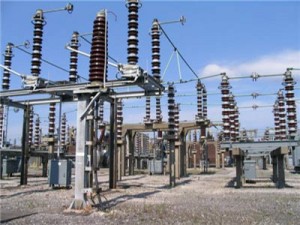By Libya Herald reporter.

Tunis, 15 October 2015:
Maintaining existing power stations that are either incomplete or not working to full capacity is . . .[restrict]probably the most practical way to help solve the current acute electricity supply crises in Libya, former Deputy Prime Minister and Electricity Minister Awad Barasi said at the Libyan Experts Forum in Tunis 11-12 October.
Barasi, who has now left Libyan politics and works as chairman of the Libyan Organization of Policies and Strategies added that the completion of incomplete units at existing power stations such as the Gulf Power station near Sirte would be the most logical next step in a short timeframe.
His short technical presentation and comments came as part of the attempt to identify practical policies that the new forthcoming Libyan Government of National Accord (GNA) could implement within its short one to two year tenure so as to be able to achieve ‘’quick wins’’.
Bernardino Leon, the UN SGSR and head of UNSMIL, has been leading negotiations with the conflicting Libyan parties to form a GNA for nearly a year. A GNA was announced by him last week and it is awaiting approval by the conflicting parties.
Short term quick wins in providing essential services and improving some infrastructure were considered imperative if the new GNA was to gain and maintain popular support. Ensuring an improved electricity supply was identified as an important policy priority by the Libyan Experts at the UN/IMF/World Bank sponsored event in Tunis.
Nevertheless, Barasi accepted comments from participants that companies such as Siemens and Alstom would only be able to send in their technicians to maintain Libya’s non-operating power stations if the new GNA was able to supply security.
Asked if renewable energy could offer a solution to Libya’s current power cuts and why none of the previous governments had seriously considered renewable energy and especially solar power, Barasi said that renewables were not a short term offer for various reasons and on different levels, but they are still considered as one of the ultimate options.
Firstly, he pointed out that the 2,000 MW power deficit makes it difficult to be supplied by solar energy. He also stated that Libya’s peak demand for summer 2015 was after sunset and therefore solar could not power its electricity demand as its efficiency would drop incredibly.
Secondly, the former Deputy Prime Minister under PM Ali Zeidan said that technically there currently does not exist any commercial battery in the world with capacity to store electricity in the thousands of Mega Watts. Therefore, if a large Mega Wattage of electricity was produced from solar, it would have to be consumed instantly as it could not be stored.
He explained that Libya consumed about 6,800 MW during peak consumption hours in 2015 but its productive capacity is only about 8,800 MW. No solar power or renewable power could produce on a central level the deficit of 2,000 MW with higher efficiency in the short term at least.
Individual citizens, small commercial units with low power consumption and remote isolated areas could install solar panels to relieve the load on the central supply chain, but at this moment in time solar was not a realistic quick option for the GNA, Barasi explained.
The former electricity Minister also pointed out that the commercial losses for the power gird had reached 40 percent before the 2011 revolution and now losses have reached 50 percent.
The transmission losses in the grid as a result of Libya’s geographically spread power transmission lines were led to losses of about 13 percent.
He also revealed that Libyans ranked as amongst the top consumers of electricity compared with Arab and African nations, consuming about 4,000 KWH/year per capita. This was considered considerably high for a nation that did not have much productive industry, meaning that consumption was mainly non-productive domestic consumption.
Asked about leasing power generators as had been the case by Libya, Barasi said that he did not believe that the leasing option was an efficient option.
He also said the logistical issue of delivering adequate supplies of fuel to the various power stations was a challenge with shortages of gas supply being a factor. There was also the inefficient problem of using heavy fuel and transporting fuel by trucks to outlying power stations. Political blockages of fuel supply were also a contributing factor to power cuts. [/restrict]







